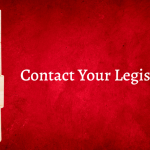JUNE 30, 2023
AUGUSTA, ME – Today Governor Mills vetoed LD 2004, An Act to Restore Access to Federal Laws Beneficial to the Wabanaki Nations. LD 2004 was based on one consensus recommendation of 22 from the 2019 bipartisan Task Force on Changes to the Maine Indian Claims Settlement Implementing Act. During the Judiciary Committee process, LD 2004 was amended to address the concerns of the Governor and Republicans by exempting certain federal laws, such as the Clean Water Act, Indian Mineral Development Act, Water Quality Act, and the Indian Gaming Regulatory Act.
LD 2004 would:
-
- Begin the process of placing the Wabanaki tribes in Maine on the same footing as the other 570 federally recognized tribes across the United States. Currently, the tribes in Maine must ask to be specifically written into federal beneficial laws that all other tribes across the country can automatically access. LD 2004 would flip this paradigm by allowing the Wabanaki to access federal laws unless those federal laws expressly exclude them.
- Allow the tribes in Maine to be included in some federal Indian law. The tribes in Maine must be written INTO federal legislation to be included. No other tribe in the country has this burden. This causes Tribes in Maine to miss out on federal funding opportunities and critical government capacity building.
- Would only pertain to tribal lands
- Does NOT include Clean Water Act, Indian Mineral Development Act, Water Quality Act and Indian Gaming Regulatory Act and more.
- In 1980, Congress made the most unusual move of abdicating its authority to the State of Maine in the Settlement Act. Congress said the State of Maine has the authority regarding the tribes in Maine, not Congress. What LD 2004 says is that the State of Maine would like the Wabanaki tribes to have access to some federal beneficial laws created for Indian Country without having the State being the middleman.
Republican State Representative John Andrews said, “LD 2004 is a basic liberty issue and that’s probably why an authoritarian like Janet Mills opposes it. Every Republican should be fighting to overturn this veto to tell the Governor that the Legislature has spoken unanimously in both chambers on enactment. It is beyond time that we gave the Tribes the freedom to help themselves like every other tribe in the United States.”
Chief of the Passamaquoddy Tribe of Sipayik Rena Newell observed, “The frustrating part is Governor Mills keeps moving the goal posts. Her office testified on her behalf in Congress, on Congressman Golden’s legislation, that this issue should be dealt with in the state. So we put in state legislation. Now she says this issue should be done by Congress. We can only conclude she wants nothing done on this issue.”
Chief of the Penobscot Nation Kirk Francis stated, “We’re disappointed that the Governor continues to block self-determination policies that would better the lives of tribal citizens and rural Mainers. Her constant insistence that she maintain control over the tribes is an outlier across the country. We’re asking to be treated fairly like the other 570 federally recognized tribes across the country.”
Ambassador Maulian Bryant of the Penobscot Nation and Wabanaki Alliance President said, “There has been an outpouring of support across Maine for Wabanaki issues. Mainers understand fairness and equity. They understand that this is not a partisan issue but a Maine issue. An issue that can lift up not just the tribes in Maine but rural Maine.”
Ambassador Osihkiyol “Zeke” Crofton-Macdonald of the Houlton Band of Maliseets declared, “Thank you to the Democrats and Republicans who have supported our efforts on self-determination. Clearly, tribal issues are not a partisan issue, they are a Governor Mills issue.”
Sage Phillips, Penobscot Nation citizen and Master of Human Rights candidate at the U. of Connecticut, stated “LD 2004 would pave the way for future generations to access federal laws and uplift our sovereignty and self-determination. Now that a super-majority of Maine lawmakers have approved LD 2004 and Gov. Mills has vetoed our rights and sovereignty, we need you to call your lawmakers and ask them to continue to stand with the Wabanaki people.” See more of Sage Phillips’ reaction to Gov. Mills’ veto in this video.
To override the Governor’s veto the House and Senate must vote in favor of overriding the Governor with 2/3 of each body present and voting.






